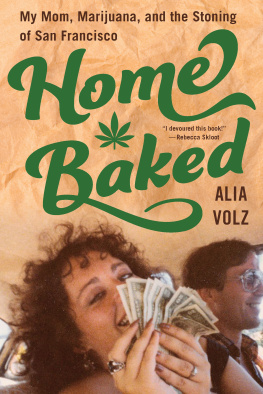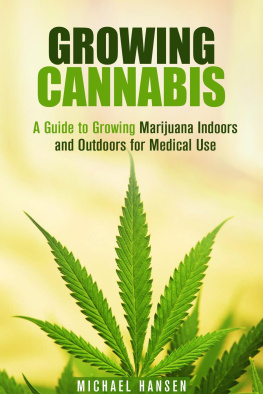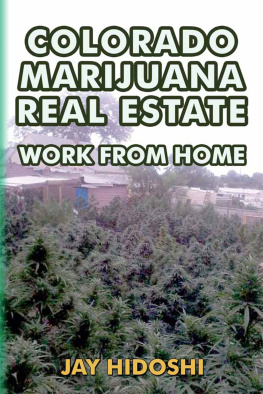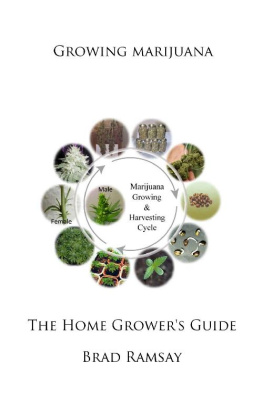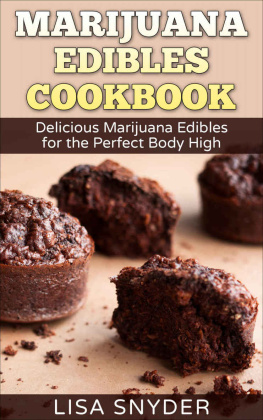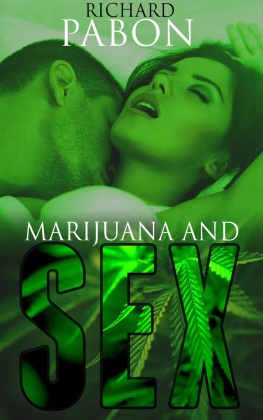Copyright 2020 by Alia Volz
All rights reserved
For information about permission to reproduce selections from this book, write to or to Permissions, Houghton Mifflin Harcourt Publishing Company, 3 Park Avenue, 19th Floor, New York, New York 10016.
hmhbooks.com
Library of Congress Cataloging-in-Publication Data
Names: Volz, Alia, 1977 author.
Title: Home baked : my mom, marijuana, and the stoning of San Francisco / Alia Volz.
Description: Boston : Houghton Mifflin Harcourt, 2020. | Includes bibliographical references.
Identifiers: LCCN 2019028706 (print) | LCCN 2019028707 (ebook) | ISBN 9780358006091 (hardcover) | ISBN 9780358007074 (ebook) | ISBN 9780358315094 | ISBN 9780358316626
Subjects: LCSH: Volz, Alia, 1977Childhood and youth. | Mothers and daughtersCaliforniaSan FranciscoBiography. | Eccentrics and eccentricitiesCaliforniaSan FranciscoBiography. | BakersCaliforniaSan FranciscoBiography. | Cooking (Marijuana) | MarijuanaTherapeutic use. | Children of divorced ParentsCaliforniaSan FranciscoBiography. | San Francisco (Calif.)Biography.
Classification: LCC CT275.V5926 A3 2020 (print) | LCC CT275.V5926 (ebook) | DDC 979.4/61092 [B]dc23
LC record available at https://lccn.loc.gov/2019028706
LC ebook record available at https://lccn.loc.gov/2019028707
Cover design by Martha Kennedy
Cover photographs courtesy of the author; paper bag texture Robert Kirk/Getty Images
Author photograph Dennis Hearne
v2.0420
Photograph and illustration credits can be found on .
An alternate version of chapter 1 first appeared in essay form under the title My Mother the Ganja Dealer on Narratively.com in 2014. Several chapters include parts of an essay titled In Any Light, by Any Name, first published by Tin House in 2014. Chapter 2 contains portions of the authors oral history with Shari Mueller, which first appeared in Instant City in 2008. All written and used by permission of the author. All rights reserved.
Recipes in this book are for illustrative purposes only. The author and the publisher disclaim liability for any adverse effects resulting directly or indirectly from information contained in this book.
Some names and descriptions have been changed to protect the privacy of those involved. Most people appear as themselves.
For Doug and Meridy.
You kept me safe from the squares.
Prologue
On the Barge
When I was nine, my public elementary school participated in a program best known by the slogan, D.A.R.E. to keep kids off drugs! It was one of Nancy Reagans pet projects, a prong of her Just Say No campaign. One afternoon per week, the entire fourth grade crowded into the cafeteria, where a uniformed policeman lectured us about the perils of narcotics like marijuana. We learned techniques for deflecting peer pressure and identifying and avoiding dealers. And we broke into groups to playact situations. I was careful to follow the programs script.
I knew how to keep a secret.
At home, there were giant black garbage bags of Mendocino shake crammed into the closet of our spare bedroom, along with pounds of fragrant, manicured buds sealed in gallon Ziplocs. My mom had operated Sticky Fingers Browniesa massive, profoundly illegal marijuana-edibles businesssince before I was born. Throughout my infancy, she and her partners distributed upward of ten thousand brownies per month; it was the first known business of its kind to operate at that scale in California. By the age of nine, I was helping my mom bake and individually wrap brownies on weekends. Sometimes I tagged along on deliveries after school.
We were the people the cop warned my class about.
By 1987, the year of my first D.A.R.E. lessons, AIDS was ravaging my hometown. People I loved as surrogate aunties and uncles were suffering gruesome, agonizing illnesses. Cannabis eased their discomfort and helped curb the deadly wasting syndrome. After-school deliveries had become tours of sickbeds.
I had been my moms accomplice since I was in the stroller. Some of my earliest flashes of memory are from brownie runs back when San Francisco had a technicolor glow. I grew up believing that I was made of my hometown, that there was no difference between me and the place I was born.
My familys secrets sometimes isolated me from other kids, but secrets also act as a bonding agent between those in the know. I was never neglected like some hippie children were; I was fawned over, encouraged, welcomed into the conspiracy. An outcast at school, I was inner-inner circle within the Sticky Fingers world. The coolest of the cool kids.
And wherever we lived, the inner sanctum of the inner circle was my moms king-size bed, nicknamed the barge. Many customers became trusted friends. Shed invite them aboard, and theyd sprawl sideways or belly down and converse for hoursunpacking relationship troubles, planning career changes, swapping stories. Equal parts therapists couch, executive boardroom, and ladies lounge, the barge was a place for sharing and intimacy. It was also where my mom counted stacks of hundreds and fifties.
I can still see her enveloped in a miasma of pot smoke, blue-green-amber eyes gleaming with her latest anecdote or an old favorite. And then flopped over on her back, wheezing with laughter and slapping the covers. I remember how the barge trembled with a good punch line, and how steady it felt when you were down and needed reassurance.
There have been countless barges over the yearsfrom mattresses so well-worn they were permanently imprinted with my moms shape to hotel beds that carried us for a night or two. Wherever my mom gets horizontal for a heart-to-heart talk with someone she loves, thats the barge. Its a state of mind as much as a place.
Thats where this book began. Sometime around 2007, I started taping my moms best stories on a handheld cassette recorder. At first, I was just archiving for myself. But as she unspooled the yarns of Sticky Fingers, I became curious about how her contribution to cannabis history fit into the broader legalization movement and the story of my hometown, even my country. I wanted to understand the historical moment and social pressures that created the secretive world I grew up in. And to know why she risked her freedomand my safetyto blaze trails in this illegal industry during the drug war.
To find out, I barged with my godmother and then my dad, both of whom helped build the business. The conversations began with people close to my heart, but the circle soon widened exponentially; its the nature of drug dealing to radiate outward. The Sticky Fingers crew guided me to former customers, who brought their friends into the project. Some came to me, and others I had to hunt. Several people have passed away in the years since we talked, leaving me with staticky recordings of their memories. A hollow silence remains in place of the voices of our many friends lost long ago to AIDS.
Since beginning my recordings, Ive conducted hundreds of hours of interviews with cannabis farmers, dealers, customers, activists, artists, business owners, city officials, and law enforcementall of whom were somehow touched by this family-run pot-brownie business. Ive sought to corroborate their memories with historical records, archival research, and contemporary news sources. All scenes and conversations are re-created with guidance from the original participants. Throughout, Ive hoped to retain the sweetness of our early conversations. My interviewing, if I must call it that, is relaxed and informal, as close to barging as I can manage.
Before I could spell my own name, I understood that I came from an outlaw family. If I ever revealed what my parents did for a living, I knew that they could go to prison and I could become a ward of the state. Whenever adults asked, I said my folks were professional artistsa true statement, though incomplete.

